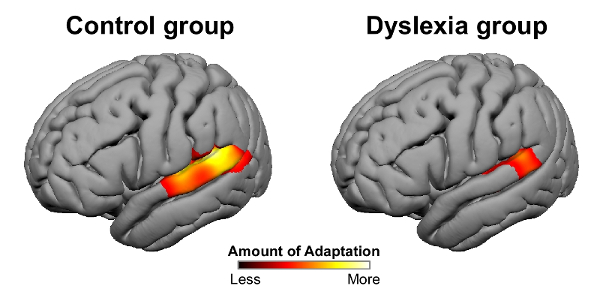Dyslexia and the brain: A problem with rapid neural adaptation
Our new findings, published today in Neuron, reveal that the brains of children and adults with dyslexia show less rapid neural adaptation than the brains of typical readers. Rapid neural adaptation is a kind of learning that the brain does in just a few seconds to make perception more efficient. A dysfunction of rapid neural adaptation may make it difficult for individuals with dyslexia to coordinate the demanding neural plasticity involved in learning to read.
- BU Research: “The dyslexia paradox“
- MIT News: “Explaining dyslexia“
- The Independent: “Dyslexia: Major cause of learning difficulty may have been discovered by neuroscientists“
- Forbes: “This is your brain on dyslexia”
- The Boston Globe: “Roots of dyslexia may be deeper than previously thought“
- Time: “Why dyslexia is more than a reading disorder“
- WebMD: “‘Groundbreaking’ research offers dyslexia clues“
- The Times: “Dyslexia hinders more than just reading“
- Perrachione, T.K. et al. (2016). Dysfunction of rapid neural adaptation in dyslexia. Neuron, 92, 1383-1397.
